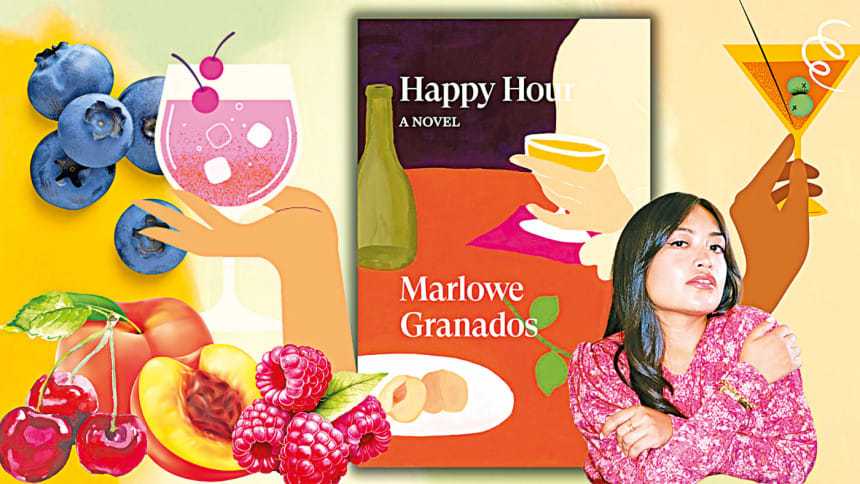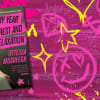It’s summer, it’s New York, and the girls are dressed up (and broke)

Happy Hour greeted me like a warm hug. This is definitely one of the sweetest books I've read this year, and possibly one of the sweetest books I will ever read.
The book follows main characters Isa Ipley and Gala Novak along their five(ish)-month stint of trying to pay their way through summer in New York with mostly charm and wit, and occasionally some money on the side. They're subletting a room in an apartment which is wearing them thin on finances so they plan to go to the flea market and set up shop, only to go get drinks after and keep on struggling to pay rent.
Like the modern-day Lucy and Ethel duo, Gala is often a bit neurotic and gets on Isa's nerves, while Isa is more on the quieter side. Isa describes it as: "The amount of effort that goes into appeasing that girl is absurd. I am never thanked; it's just always expected." But that is not to say that Gala is made to be the villain of the story; there, frankly, is none. It is just a delightful tall tale of two young girls strutting about in the New York heat in their designer knock-offs. It's like if Carrie Bradshaw swapped out her closet full of Louboutins for thrifted ones, and instead of "wondering" away on her laptop in her big Manhattan penthouse, she gets busy selling second-hand, vintage clothes at the flea market at a profit—it is one of the best things ever.
All the chapters of the novel are written like journal entries. It is Isa's diary and we get to take a peek into their life on a handful of days every month from May to September. We follow them through their misadventures and late night, and get acquainted with Gala's delinquency fairly quickly when she smacks a beer bottle into a John-Henry's head because she is convinced that he is annoying Isa with his "timid" attempts at flirtation.
There is a large cast of characters that accompany the girls throughout the course of their stay in New York, but we don't always remember much about them because we don't really have to. The hero of the story is Isa and her faithful co-conspirator, Gala, and everything else is mere decoration for the plot, which itself is also very erratic. But not in a disengaged way where it does not make sense, but rather fittingly, because this is exactly what the point of view would have been like for a pair of 20-year-olds navigating their way around a city they know nothing about. One minute we're sitting next to a gold-toothed taxi driver playing a song about love and longing and next we're wondering if a fig isn't just an outside-in caterpillar.
However, one of the core foundations of the book is Isa and Gala's unrelenting friendship. This is possibly one of the most honest portrayals of female friendships I've come across, especially at 21. Their love for each other is fierce and sometimes they don't express it in the right way. They bicker and fight, but Isa knows she would not prefer anyone else's company but Gala's.
There are varied opinions when it comes to this book. Some have described it as aimless, with a sporadic plot that ultimately leads nowhere, calling it a less depressing version of Ottessa Moshfegh's novel My Year of Rest and Relaxation (Penguin Books, 2019).
Because I remember being 11 years old and sneaking off after lights out to catch reruns of Sex and The City on AXN, before my mother ultimately figured it out and shooed me back to bed, the storyline of Happy Hour played into the mystique of it all for me—of New York City, and more particularly women in New York City.
Arshi Ibsan Radifah is a literature major who loves unreliable narrators and Wes Anderson movie sets. If she had it her way she would have liked to play bass for a girl band in the '90s, but for now she'll suffice by rewatching Empire Records.

 For all latest news, follow The Daily Star's Google News channel.
For all latest news, follow The Daily Star's Google News channel. 








Comments